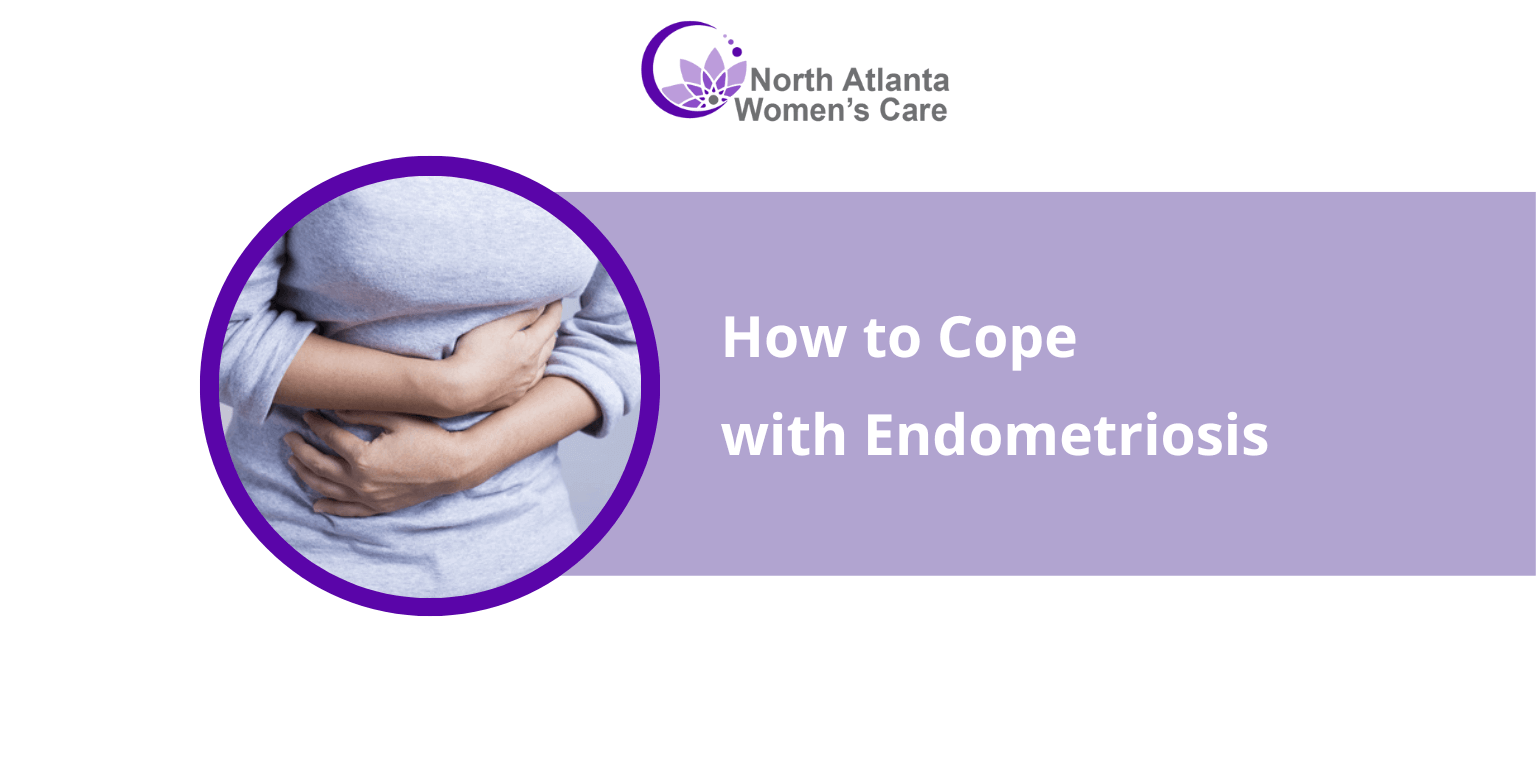How to Cope with Endometriosis

Endometriosis is an inflammatory disorder that affects 10-15% of all reproductive-aged women and causes chronic pelvic pain in 70% of women. While it is common among women, leaving it untreated can cause infertility. Though there is no cure for endometriosis, you can effectively manage the symptoms with medications, diet, and lifestyle changes.
Read on to learn more about endometriosis, its symptoms, and how to cope with it.
What Is Endometriosis?
Endometriosis is when the tissue almost identical to the lining of the uterus (endometrium) grows outside the uterus, including ovaries, bowel, fallopian tubes, bladder, vagina, tissues lining your pelvis, etc. Though the tissue grows outside, it acts as endometrial tissue (like it has grown inside the endometrium). Over time, the tissue becomes thicker and then breaks down and bleeds during every menstrual cycle. As this blood has no path to exit the body, it accumulates to form cysts, adhesions, and scar tissues, which all can cause severe pain.
Symptoms of Endometriosis
While 20-25% of patients with endometriosis are asymptomatic, sometimes symptoms are vague and overlap with other existing health issues, so the condition can be misdiagnosed.
Be aware of the common symptoms of endometriosis to prevent delays in diagnosis and treatment.
- Fatigue
- Heavy periods
- Depression or anxiety
- Painful bowel movements
- Abdominal bloating and nausea
- Painful urination
- Chronic pelvic pain
- Pain during or after intercourse
Tips for Living with Endometriosis
Coping with endometriosis can be emotionally and physically difficult, but the following lifestyle changes and health tips will help:
-
Be Active
Simple exercises like walking, stretching, and breathing can help ease your endometriosis pain. If you have intense pelvic pain, you can do pelvic floor exercises that mitigate your pain while strengthening your pelvic muscles.
-
Embrace Physical Therapy
Physiotherapy (includes simple movements and stretches) can be effective in relieving your endometriosis pain while maximizing the strength, movement, and function of the affected area.
-
Try TENS Therapy
Transcutaneous electrical nerve stimulation (TENS) therapy utilizes mild electric currents that strike your nerves to prevent them from sending pain signals to your brain, thus reducing pain.
-
Undergo Acupuncture Treatment
Acupuncture involves inserting thin needles at specific points in your body to stimulate nerves and muscles. This, in turn, stimulates your body’s natural healing abilities, thus reducing endometriosis pain.
-
Take Pain Medication Beforehand
You can take non-steroidal pain relievers at least 24 hours before your expected menstrual period day. These medications prevent your body from releasing chemicals that are responsible for causing pain. With your doctor’s consent, you can take the medications until your menstrual period ends.
-
Get a Massage
A soothing massage on your abdomen or back can help you cope with menstrual pain while easing your stress.
-
Take a Short Nap
As endometriosis causes fatigue, try to be consistent with your sleep cycle. Moreover, taking a short mid-afternoon nap on the days before your period can boost your overall mood.
-
Have Your Morning Coffee
Though rare, endometriosis can lead to endometrial cancer. However, you can minimize the risk of developing endometrial cancer by beginning your day with a cup of coffee.
-
Get a Botox Shot
Botox is an effective muscle relaxant. When injected into your pelvic muscles, Botox relaxes the muscles, preventing them from contracting, thus reducing pain and cramps from endometriosis.
Foods That Help Relieve Endometriosis Symptoms
Nutrition can be helpful in treating or managing endometriosis since it is a hormone-dependent condition. Below are some foods to help manage pain and inflammation caused by endometriosis.
- Gluten-free foods (rice noodles, corn pasta, lentils, and buckwheat)
- Cinnamon
- Fresh fruits and vegetables
- Whole grains
- Fatty fish, such as herring and salmon
- Flaxseeds
- Walnuts
- Seafood
If not properly treated, women with endometriosis can develop complications, chronic pain, bladder/bowel issues, or even have a higher risk of developing cancer. It is essential to visit your healthcare provider as soon as you develop endometriosis symptoms for appropriate diagnosis and treatment.
Want to Get Rid of Endometriosis Pain? Contact North Atlanta Women’s Care!
At North Atlanta Women’s Care in Suwanee, GA, we offer best-in-class treatment for endometriosis, depending on your symptoms and underlying cause. So, whether it is painful periods, abdominal bloating, or pelvic pain, we can help resolve it. Contact us today to schedule an appointment.
Comments are closed

